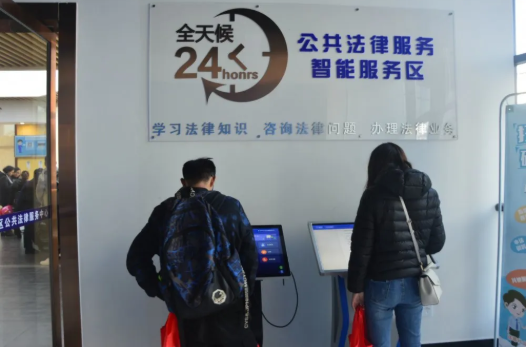Yunnan enhances legal services for poverty-stricken population
This year is key for China to achieve its goals of eliminating extreme poverty and completing the building of a moderately prosperous society in all respects. Bearing that in mind, the southwestern province of Yunnan has been drawing on its integrated public legal service system to meet the needs of its impoverished population.
In-depth integration of platforms
After building a province-wide physical public legal service system, Yunnan's judicial department rolled out a public legal service integration plan this April, aimed at realizing an internet-based interconnection between its three platforms, namely, its physical public legal service centers, a hotline and an online platform.

Under the plan, the public can apply for services at any of the three platforms, which will transmit the applications to the other two.
In addition, the province continues to carry out its legal service-powered poverty relief campaign in rural areas with selected lawyers, people's mediators, grassroots legal workers and judicial administrators providing legal services in impoverished counties, towns and villages across the province.
Comprehensive effort
To create a favorable social atmosphere for poverty reduction, the province mobilized its massive mediation force to resolve legal disputes for impoverished population.
Meanwhile, experienced lawyers are designated as co-heads of poor villages who are tasked with providing legal opinions on poverty relief projects.
To support enterprises based in backward areas, the province set up legal service teams who give the enterprises free legal advice on issues like labor relations and medical insurance.
The province's lawyers also take the initiative to offer legal services in border and underdeveloped areas.
What's more, the province has expanded its legal aid services to all people above 70 years of age with serious diseases, migrant workers who are seeking wages in arrears or compensations for work-related injuries as well as registered poor households without examining their economic conditions in advance.

Ministry of Justice of the
People's Republic of China
All rights reserved. Presented by China Daily.
京ICP备13016994号-2


